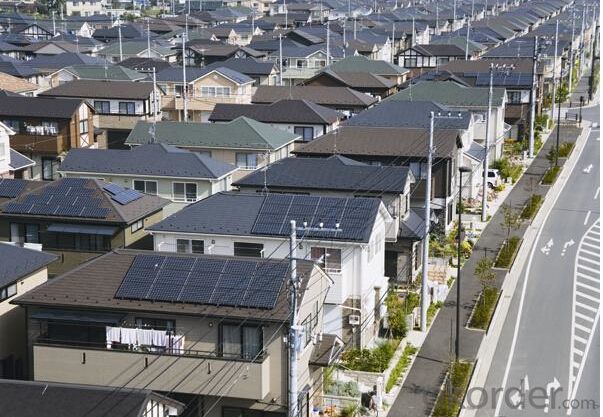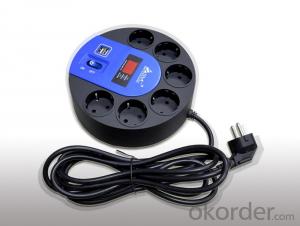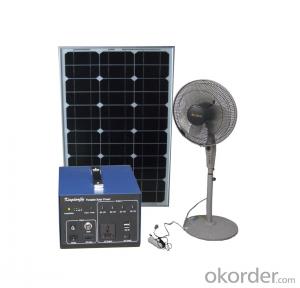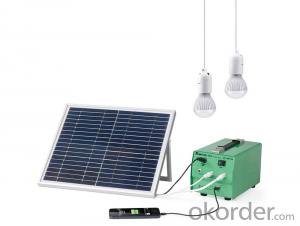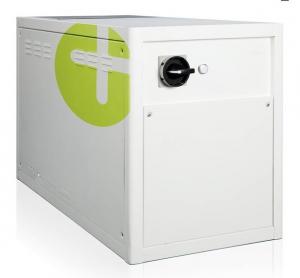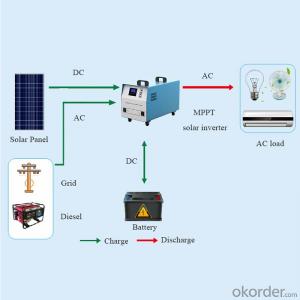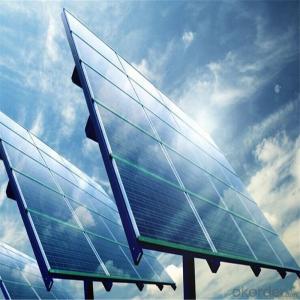5kW Floating Solar Energy System
- Loading Port:
- China Main Port
- Payment Terms:
- TT or LC
- Min Order Qty:
- -
- Supply Capability:
- -
OKorder Service Pledge
Quality Product, Order Online Tracking, Timely Delivery
OKorder Financial Service
Credit Rating, Credit Services, Credit Purchasing
You Might Also Like
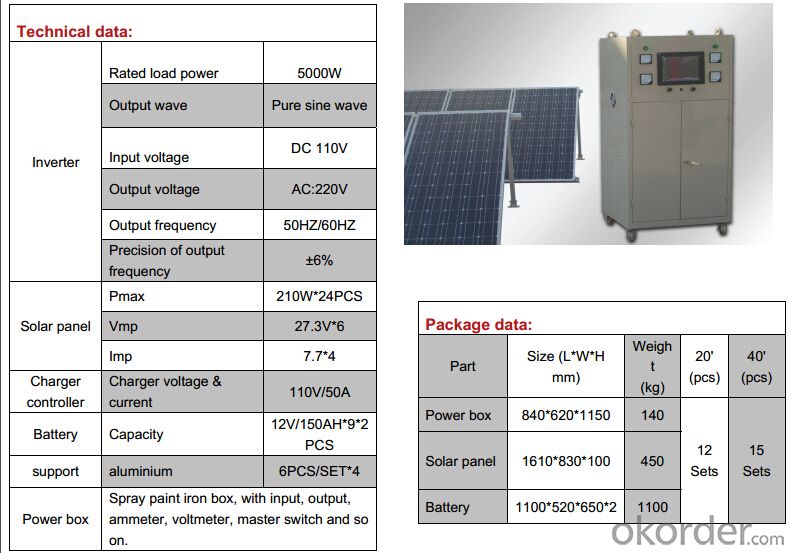
- Q: What is the role of solar energy systems in reducing noise pollution?
- Solar energy systems play a significant role in reducing noise pollution as they operate silently without the need for any mechanical parts or combustion. Unlike traditional energy sources like generators or power plants, solar panels generate electricity through the absorption of sunlight, eliminating noise emissions. This not only provides a quieter and more peaceful environment for nearby communities but also has a positive impact on wildlife, reducing disturbances caused by loud machinery or industrial processes.
- Q: Can solar energy systems be used for powering off-grid transportation systems?
- Yes, solar energy systems can be used to power off-grid transportation systems. Solar panels can be installed on vehicles, such as electric cars, buses, bikes, boats, and even airplanes, to generate electricity that can be used to charge their batteries or directly power their engines. This allows for clean and sustainable transportation in areas without access to traditional power grids, reducing dependence on fossil fuels and minimizing environmental impact.
- Q: Can solar energy systems be used for charging mobile devices?
- Yes, solar energy systems can be used for charging mobile devices. Solar panels can convert sunlight into electricity, which can then be used to charge mobile devices through a compatible charger or power bank. This provides a sustainable and environmentally friendly way to charge mobile devices, especially in remote areas or during power outages.
- Q: Can solar energy systems be used for powering electric car manufacturing plants?
- Yes, solar energy systems can be used to power electric car manufacturing plants. Solar energy systems use sunlight to generate electricity, which can then be used to power various industrial operations, including manufacturing plants. By installing solar panels on the roofs or open spaces of the manufacturing facility, the plant can harness renewable energy to meet its electricity needs. This not only reduces the reliance on fossil fuels but also helps in reducing greenhouse gas emissions associated with conventional electricity generation. Additionally, solar energy systems can be combined with energy storage solutions to ensure a continuous power supply, even during periods of low sunlight or at night. Therefore, using solar energy systems for powering electric car manufacturing plants is a sustainable and environmentally friendly choice.
- Q: Can solar energy systems be used for outdoor recreational activities?
- Yes, solar energy systems can be used for outdoor recreational activities. Solar panels can be used to power various outdoor recreational equipment such as camping lights, portable speakers, and even charging stations for electronic devices. Additionally, solar energy systems can be utilized to power outdoor recreational facilities like swimming pools, sports complexes, and campgrounds, providing sustainable and clean energy for these activities.
- Q: How do solar energy systems contribute to reducing greenhouse gas emissions?
- Solar energy systems contribute to reducing greenhouse gas emissions in several ways. Firstly, solar power is a renewable energy source that does not release any harmful greenhouse gases during its operation. By replacing fossil fuel-based electricity generation, solar energy systems significantly decrease the amount of carbon dioxide and other greenhouse gases emitted into the atmosphere. Secondly, solar energy can be used for heating and cooling purposes, reducing the reliance on fossil fuel-powered systems that contribute to greenhouse gas emissions. Lastly, the widespread adoption of solar energy systems encourages a shift towards a more sustainable and environmentally friendly energy mix, leading to long-term reductions in greenhouse gas emissions.
- Q: Can solar energy systems be used in space exploration?
- Solar energy systems are indeed utilized in space exploration. In the demanding conditions of space, solar energy proves to be a dependable and renewable power source. Satellites and spacecraft commonly employ solar panels to generate electricity for their diverse systems and instruments by harnessing sunlight and converting it into electricity through the photovoltaic effect. One of the primary benefits of employing solar energy in space exploration lies in its abundance. The sun offers an essentially limitless energy source that can be accessed throughout the entire solar system. Consequently, solar power becomes an appealing option for lengthy missions where alternatives like batteries or fuel cells would be impractical. Moreover, solar energy systems possess the advantage of being lightweight and scalable, making them an ideal choice for space applications. This is vital due to the significant concern over weight during space missions, given the exorbitant cost of launching objects into space. Solar panels can be conveniently packed and deployed, presenting a compact and efficient solution for power generation. Furthermore, solar energy exhibits its superiority as a clean and sustainable power source. Unlike traditional fuel-based systems, solar energy does not emit harmful substances or generate waste, making it crucial for maintaining spacecraft cleanliness and minimizing environmental impact. However, it is important to acknowledge the limitations of solar energy systems in space. For missions beyond the Mars orbit, where sunlight is notably diminished, alternative power sources like nuclear energy or fuel cells may prove more suitable. Nonetheless, solar energy remains a vital and extensively employed technology in space exploration, playing a key role in powering scientific experiments, communication systems, and other essential functions.
- Q: Can a solar energy system be installed on a ground-mounted structure?
- Yes, a solar energy system can be installed on a ground-mounted structure. Ground-mounted solar systems are a popular option for residential, commercial, and utility-scale installations. These systems involve placing solar panels on a structure that is built on the ground, such as a pole, rack, or frame. Ground-mounted systems have several advantages, including flexibility in panel placement, easier maintenance and cleaning, and the ability to optimize the angle and orientation of the panels for maximum energy production. Additionally, ground-mounted systems can be installed in areas where rooftop installation is not feasible, such as properties with limited roof space or shading issues. Therefore, installing a solar energy system on a ground-mounted structure provides an effective and efficient way to harness solar power.
- Q: How much space is required for a solar energy system?
- The amount of space required for a solar energy system depends on various factors, such as the system's capacity, the type of technology used, and the available sunlight. Generally, for residential applications, a rooftop solar system typically requires around 100-400 square feet of space per kilowatt of capacity. On the other hand, larger utility-scale solar installations might need several acres of land to accommodate the solar panels.
- Q: Are solar energy systems scalable for different energy needs?
- Yes, solar energy systems are scalable for different energy needs. They can be designed and configured to meet the energy requirements of various scales, from small residential installations to large commercial or industrial projects. By adding or removing solar panels and adjusting the system's capacity, solar energy can be effectively scaled up or down to accommodate different energy demands. Additionally, advancements in technology and improved efficiency of solar panels have made it easier to scale solar energy systems to meet larger energy needs effectively.
Send your message to us
5kW Floating Solar Energy System
- Loading Port:
- China Main Port
- Payment Terms:
- TT or LC
- Min Order Qty:
- -
- Supply Capability:
- -
OKorder Service Pledge
Quality Product, Order Online Tracking, Timely Delivery
OKorder Financial Service
Credit Rating, Credit Services, Credit Purchasing
Similar products
Hot products
Hot Searches
Related keywords

